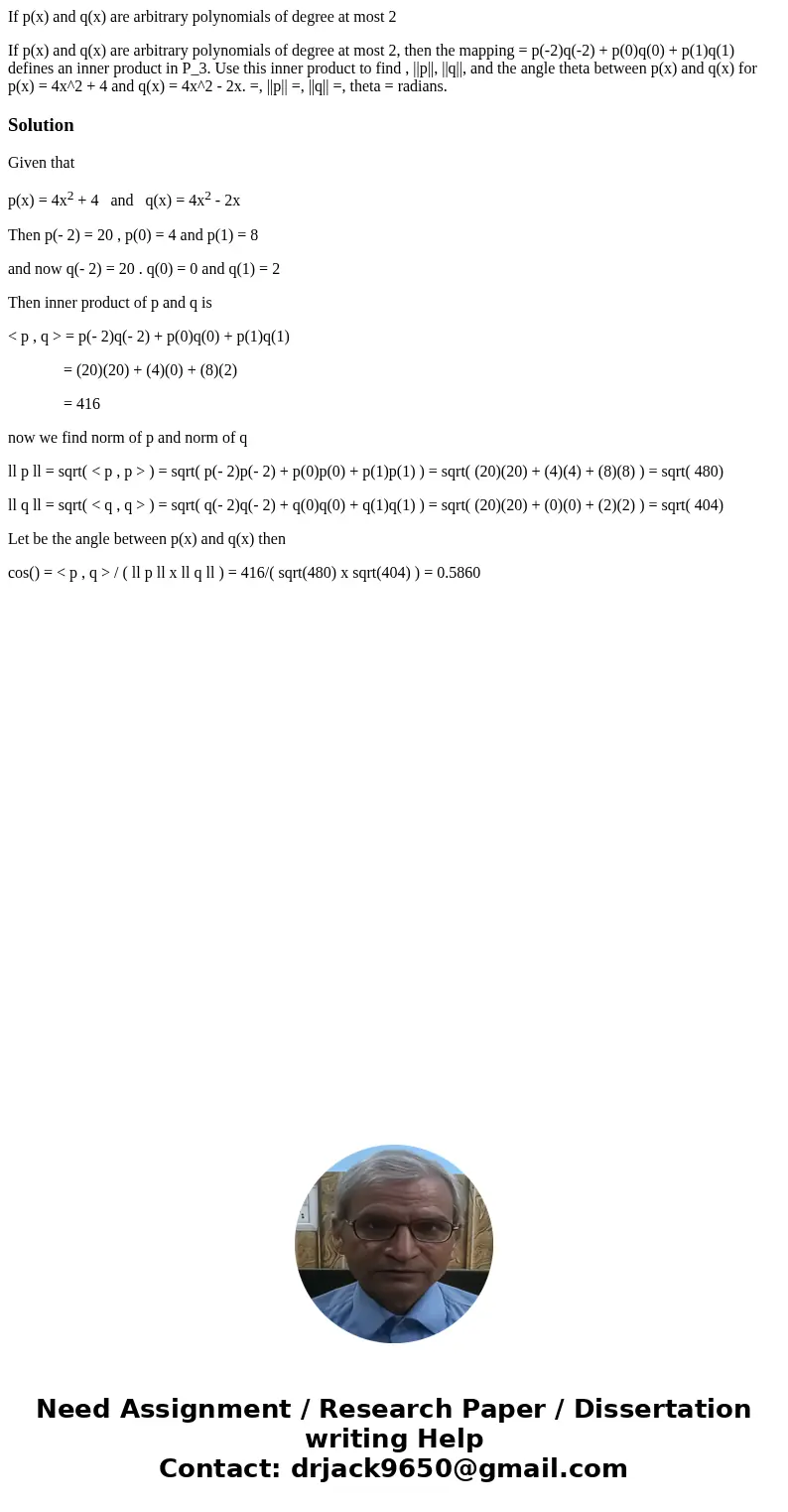If px and qx are arbitrary polynomials of degree at most 2 I
If p(x) and q(x) are arbitrary polynomials of degree at most 2
If p(x) and q(x) are arbitrary polynomials of degree at most 2, then the mapping = p(-2)q(-2) + p(0)q(0) + p(1)q(1) defines an inner product in P_3. Use this inner product to find , ||p||, ||q||, and the angle theta between p(x) and q(x) for p(x) = 4x^2 + 4 and q(x) = 4x^2 - 2x. =, ||p|| =, ||q|| =, theta = radians.Solution
Given that
p(x) = 4x2 + 4 and q(x) = 4x2 - 2x
Then p(- 2) = 20 , p(0) = 4 and p(1) = 8
and now q(- 2) = 20 . q(0) = 0 and q(1) = 2
Then inner product of p and q is
< p , q > = p(- 2)q(- 2) + p(0)q(0) + p(1)q(1)
= (20)(20) + (4)(0) + (8)(2)
= 416
now we find norm of p and norm of q
ll p ll = sqrt( < p , p > ) = sqrt( p(- 2)p(- 2) + p(0)p(0) + p(1)p(1) ) = sqrt( (20)(20) + (4)(4) + (8)(8) ) = sqrt( 480)
ll q ll = sqrt( < q , q > ) = sqrt( q(- 2)q(- 2) + q(0)q(0) + q(1)q(1) ) = sqrt( (20)(20) + (0)(0) + (2)(2) ) = sqrt( 404)
Let be the angle between p(x) and q(x) then
cos() = < p , q > / ( ll p ll x ll q ll ) = 416/( sqrt(480) x sqrt(404) ) = 0.5860

 Homework Sourse
Homework Sourse